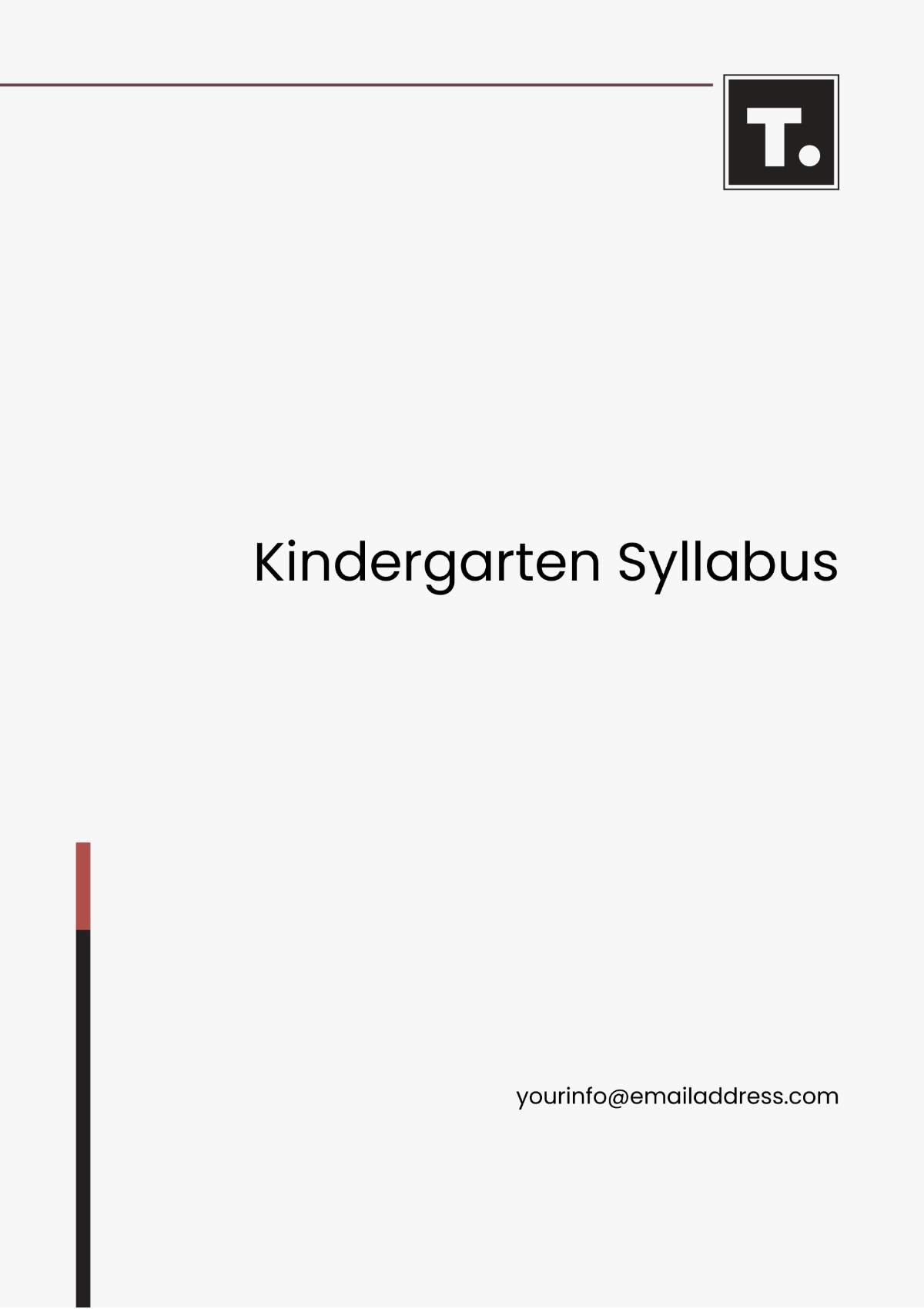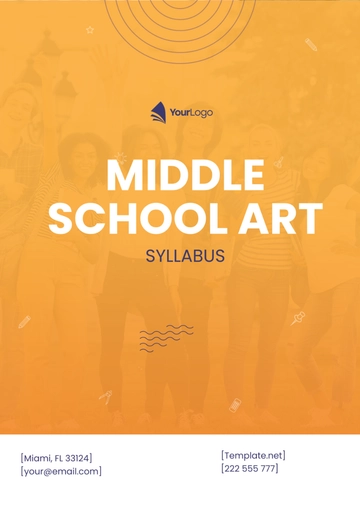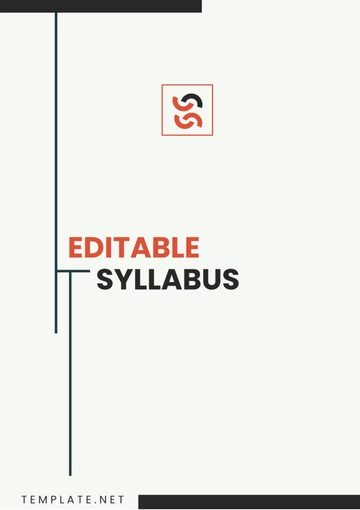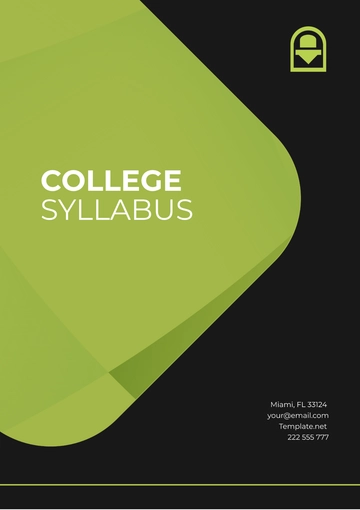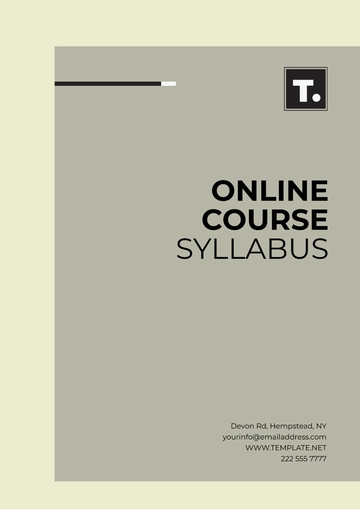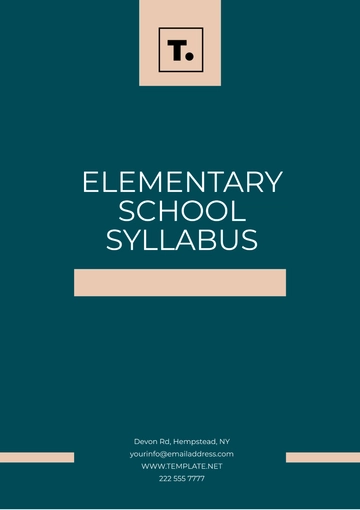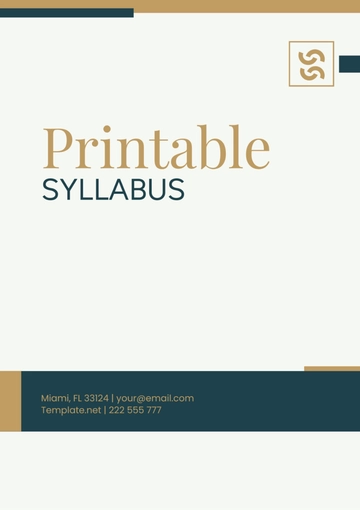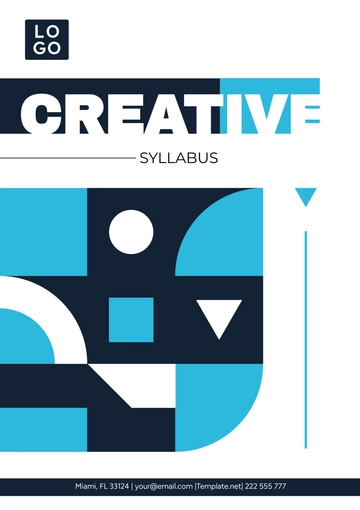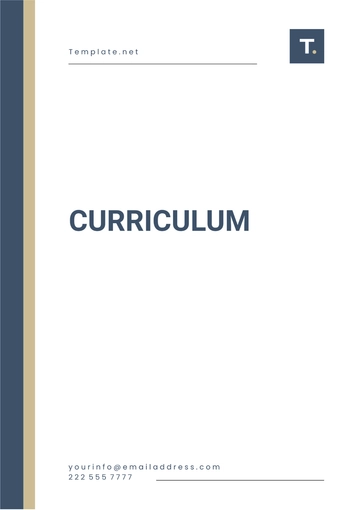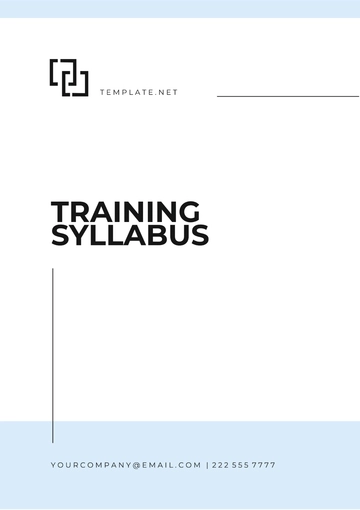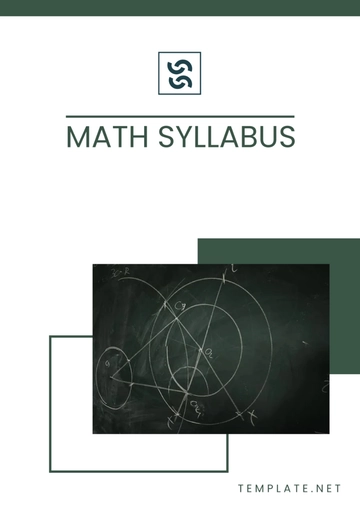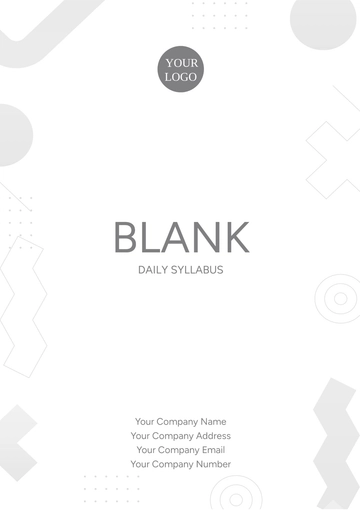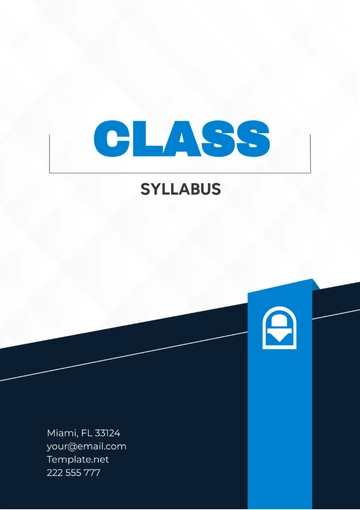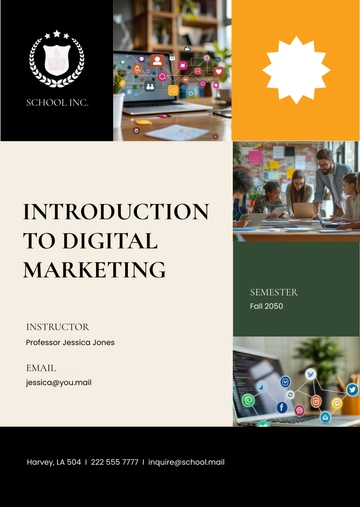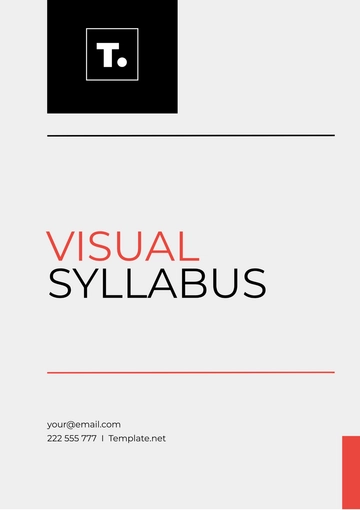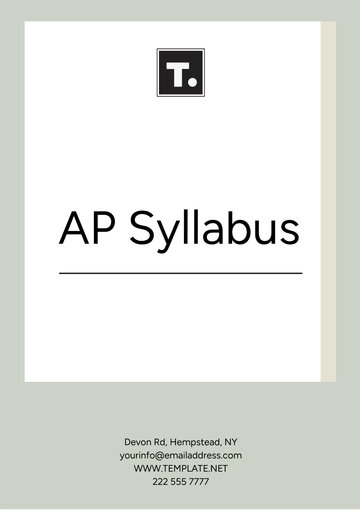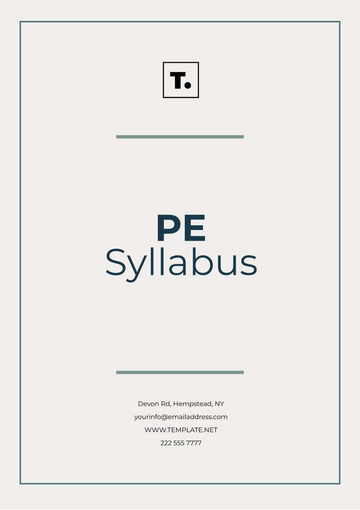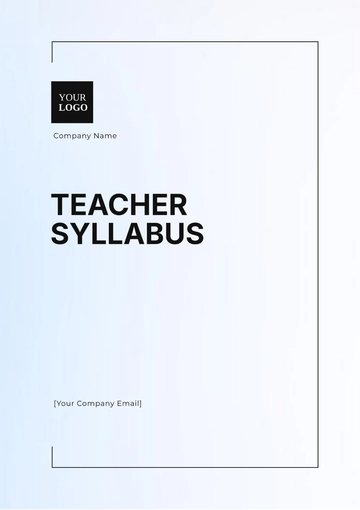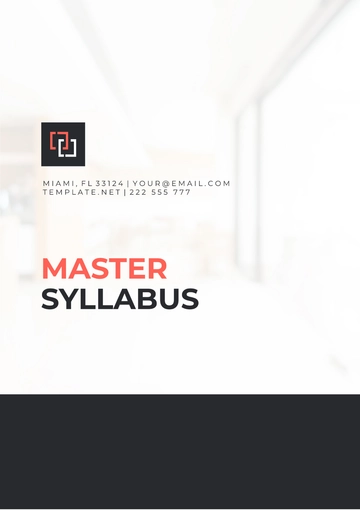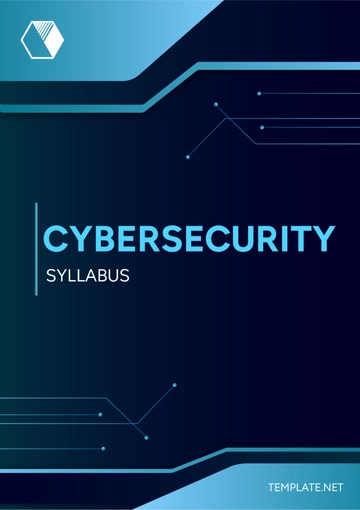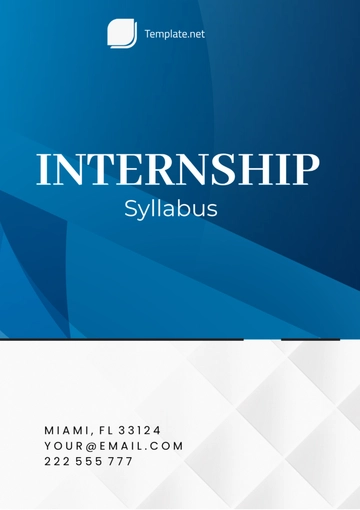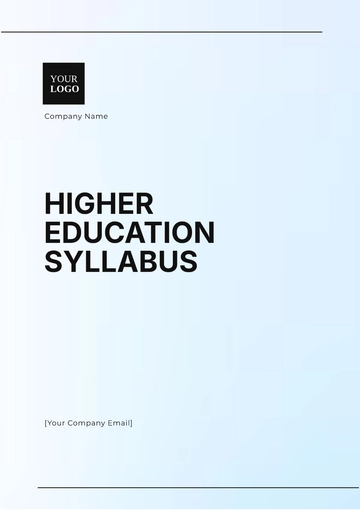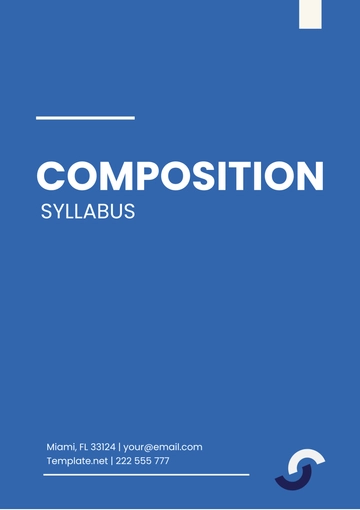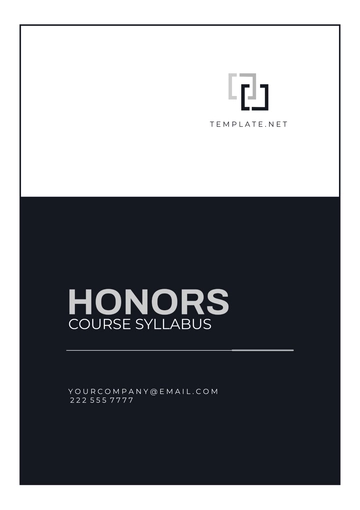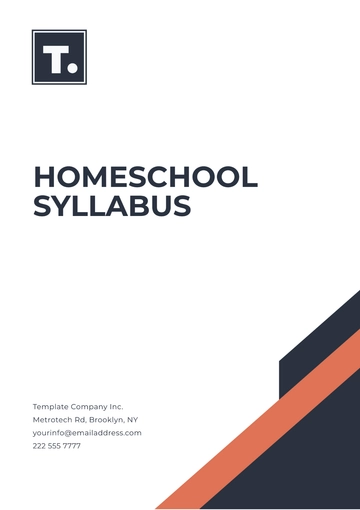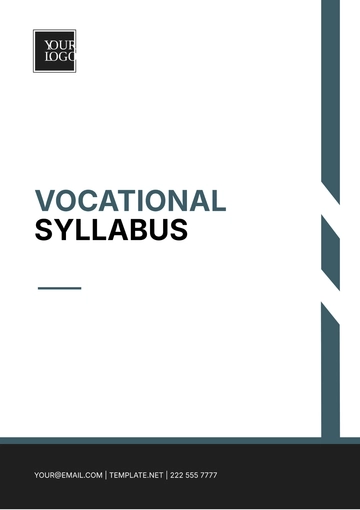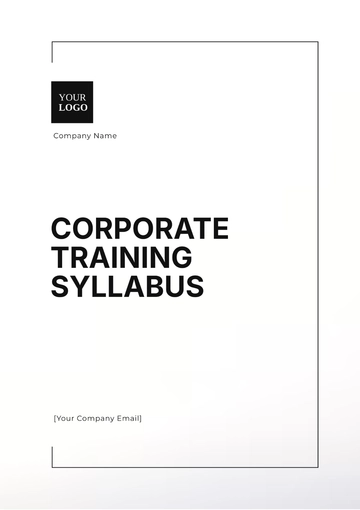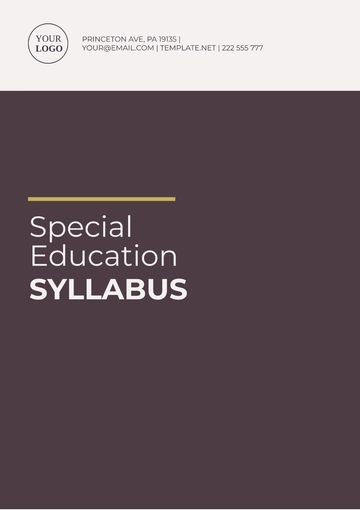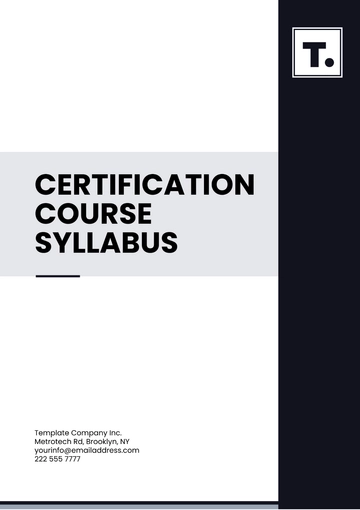Kindergarten Syllabus
Kindergarten Curriculum and Learning Objectives Course
Course Title | [COURSE TITLE] |
Course Code | [COURSE CODE] |
Instructor Name | [YOUR NAME] |
Email | [YOUR EMAIL] |
Class Time | [CLASS TIME] |
Class Duration | [DATE] - [DATE] |
1. Course Title
This course introduces participants to the foundational literacy, numeracy, social and emotional skills that kindergarten students need. This syllabus outlines the content that will be covered during the course, expectations for participation, and grading criteria.
2. Instructor Information
Name: [YOUR NAME]
Email: [YOUR EMAIL]
Organization: [YOUR COMPANY NAME]
3. Learning Objectives
Understand the essential developmental needs of kindergarten students
Learn how to deliver engaging and effective lessons that cater to varying learning styles
Identify key components of literacy and numeracy curriculum for kindergarten students
Understand how to foster emotional intelligence and social skills in young children
Learn about the appropriate use of assessment in a kindergarten context
4. Course Schedule
Week | Topic | Required Readings |
|---|
1 | Introduction to School | "The Kissing Hand" by Audrey Penn "Llama Llama Misses Mama" by Anna Dewdney "First Day Jitters" by Julie Danneberg
|
2 | Colors and Shapes | "Brown Bear, Brown Bear, What Do You See?" by Bill Martin Jr. "Mouse Paint" by Ellen Stoll Walsh "Shape by Shape" by Suse MacDonald
|
3 | Numbers and Counting | "Ten Black Dots" by Donald Crews "Chicka Chicka 1, 2, 3" by Bill Martin Jr. "One Duck Stuck" by Phyllis Root
|
5. Required Reading and Materials
"Early Childhood Education: Kindergarten Reflection and Analysis" by Doris Bergen
"Foundations of Play Theory" by Robert E. Kraus
"Mathematics for Early Childhood Education" by Susan Sperry Smith
"Recognizing and Supporting the Development of Self-Regulation in Young Children" by Kathy Komatsuli
Teacher-created material based on the aforementioned texts
6. Assignments and Assessments
Reading Reflections – participants will submit weekly reflections on assigned readings.
Lesson Plan Development – participants will develop and submit a lesson plan on a given topic.
Teaching Demo – participants will demonstrate their teaching strategies through a mock lesson.
Exam – a comprehensive final exam covering all course content.
Final Project – participants will create an integrated, week-long unit plan.
7. Course Policy
Participation: Active participation in every session is expected.
Homework: All assignments should be submitted on time. Late submissions will incur a penalty.
Attendance: All participants should attend every session. In case of unavailability, prior notice should be given.
Professionalism: Everyone is expected to respect each other and maintain professionalism throughout the course.
Academic Integrity: Acts of plagiarism, cheating and other forms of academic dishonesty will not be tolerated.
8. Grading Policy
Criteria | Percentage |
|---|
Class Participation | 10% |
Weekly Reading Reflections | 20% |
Lesson Plan Development & Teaching Demo | 30% |
Final Exam & Project | 40% |
Total | 100% |
Disclaimer
The course syllabus that has been provided is not rigidly set and may potentially be subjected to alterations or modified, at any given point throughout the duration of this course. The cause for these possible changes could stem from the evolving needs and demands of the enrolled students, or they could be necessitated due to the practical application and handling of the material and content that is to be covered within the framework of this course.
Syllabus Templates @ Template.net
